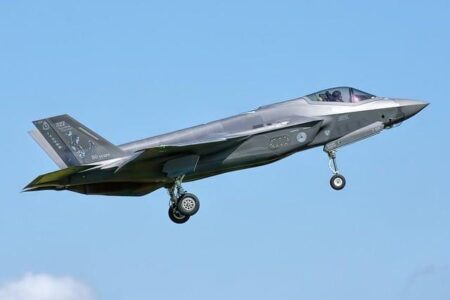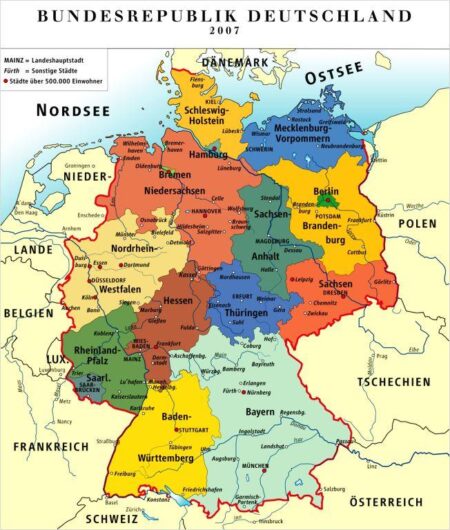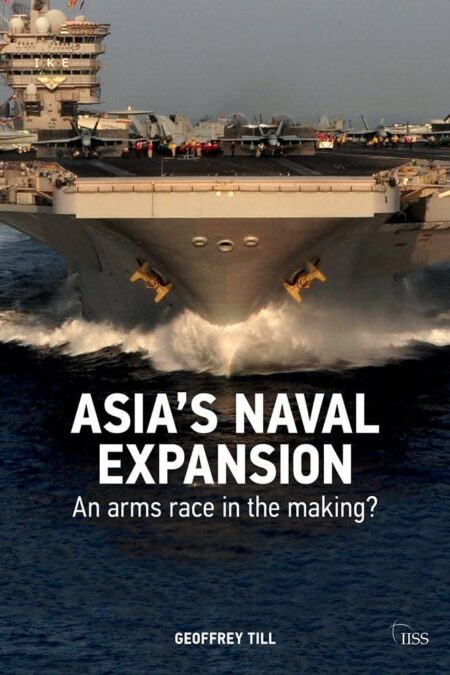Germany’s Bundeswehr is preparing for a significant boost in military spending, set to enhance defense capabilities in response to escalating geopolitical tensions. This move signals a bold and transformative shift in Berlin’s defense strategy
Browsing: military spending
Japan’s Cabinet has approved a groundbreaking defense budget aimed at dramatically boosting its military power and sending a strong signal to China amid rising regional tensions. This decisive step marks a pivotal shift in Japan’s security approach, showcasing an unprecedented commitment to ramping up defense spending
Japan’s Cabinet has approved a groundbreaking defense budget, supercharging its military strength to tackle growing challenges from China. This decisive action underscores rising regional tensions and Tokyo’s steadfast dedication to protecting national security
Sweden and Germany are dramatically cutting foreign aid budgets to supercharge their support for Ukraine and strengthen their defense forces. This bold strategy highlights shifting priorities amid escalating geopolitical tensions sweeping across Eastern Europe
Germany is dramatically increasing its military budget amid rising global tensions, aiming to transform and modernize its armed forces like never before. This decisive move highlights Berlin’s strong commitment to strengthening NATO and ensuring the country’s security stands firm in an uncertain world
The UK government has appointed a senior defence official to Rothschild bank amid a surge in military spending, spotlighting an expanding alliance between the defence sector and financial institutions, Intelligence Online reveals
The United Kingdom’s F-35 program is facing intense scrutiny as cost-saving measures raise alarm among experts about potential impacts on readiness and capabilities. Reports warn that these budget cuts could seriously undermine the program’s long-term operational effectiveness
Germany is gearing up to strengthen its defense capabilities with the acquisition of 20 additional Airbus helicopters in a €1 billion deal, Reuters reports. This bold step highlights the nation’s commitment to bolstering security in response to escalating global tensions
Russia’s 2026 budget reveals steeper tax hikes designed to power an ambitious military expansion amid the ongoing conflict. Experts warn that this increased financial strain on citizens highlights the Kremlin’s unmistakable decision to put defense spending ahead of domestic needs
Germany is investing billions to supercharge its space defense, with Berlin zeroing in on boosting satellite security and confronting emerging threats orbiting Earth. This bold move underscores the escalating geopolitical tensions in the ultimate frontier
Japan has unveiled a groundbreaking $60 billion defense budget, spotlighting cutting-edge unmanned systems and powerful long-range munitions to strengthen regional security amid escalating tensions, USNI News reports
In a bold and historic move, Germany is set to build Europe’s most powerful military force. This groundbreaking shift marks a decisive break from its post-Cold War defense stance, fueled by escalating regional security threats
Renewed militarization efforts have ignited fierce debate within Germany’s SPD, exposing deep rifts over defense policy. This conflict puts party unity at risk as calls for increased military spending grow stronger
The UK is ramping up its military spending like never before, reacting to rising global tensions with bold moves. As defense budgets soar, experts are diving into the economic impact and pondering the lasting price of preparing for potential conflict. What will the real cost turn out to be?
Germany has thrown its weight behind former President Trump’s bold proposal to ramp up NATO defense spending to a striking 5% of GDP. This significant endorsement arrives at a crucial time, as European nations are reevaluating their defense budgets in response to escalating security challenges in Eastern Europe
Spain stands out as the only major NATO member yet to embrace the alliance’s ambitious goal of dedicating 5% of GDP to defense spending. As European nations ramp up their military budgets in response to escalating geopolitical tensions, Spain’s hesitance sparks intriguing questions about its defense priorities and future commitments.
China has voiced its apprehensions regarding former President Trump’s ambitious $1 trillion Pentagon budget, perceiving it as a potential threat to regional stability. Officials warn that this surge in military spending could heighten tensions across the Asia-Pacific, emphasizing the urgent need for diplomatic solutions
Russia is set to embark on a significant naval expansion initiative, with plans to invest approximately $100 billion. This ambitious project aims to rejuvenate its maritime capabilities amid rising geopolitical tensions, signaling a pivotal shift in naval strategy.
A steep decline in oil prices poses a significant challenge for Russia, jeopardizing its extensive funding for the ongoing war in Ukraine. As revenues dip, analysts warn that Moscow may face increased pressure to scale back military operations.
AUKUS marks a pivotal shift in defense collaboration among Australia, the U.S., and the U.K. as they enhance military capabilities through advanced technologies, including submarine development, signaling a united front against emerging global threats.

















